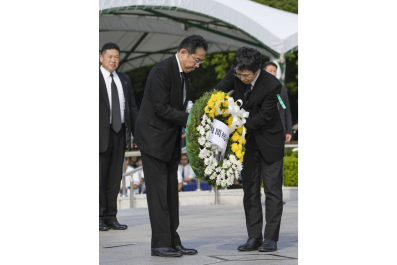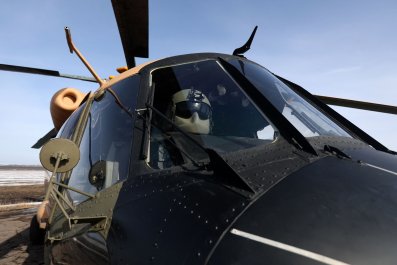China has become a central issue at an election in a remote pacific atoll region this month, with Beijing praising its incumbent president.
On Aug. 19, a second round of voting is scheduled for the Western Oceanic nation of Kiribati, after voters took to the polls on Wednesday, where the voted in a national election that is seen as a referendum for the country's strong ties to China and current living costs for residents.
Kiribati, a low-lying atoll nation of 120,000 people is among the world's most threatened by rising sea levels, lacking the resource wealth or tourism appeal of other Pacific islands. However, its strategic location near Hawaii and vast ocean territory have heightened its significance, fueling a power struggle between Western nations and Beijing.
In 2019, the Kiribati government changed its support from Taiwan to China, due to its national interests. The move followed some other Pacific nations that have switched support and now side with China since 2016, over Taiwan.
Analysts who spoke with The Associated Press (AP) note that information about the campaigning and this week's vote has been scarce online, with limited English-language news sources available in the country. The delayed or blocked entry of Australian officials to Kiribati and the lack of communication between the two governments in recent years have fueled concerns in Canberra over the extent of Beijing's influence.
Taneti Maamau, the incumbent president of Kiribati, is expected to seek another term in office after being elected in 2016. However, the presidential election is expected to take place in October, and the current voting is for Parliament.
According to Agence France-Presse (AFP), China's ambassador Zhou Limin expressed support for Maamau this week.
"In the past year, I have observed an increase in the number of cars on the roads, a wider range of goods in supermarkets, and new entertainment equipment at playgrounds, which are strong proof of the improvement of Kiribati people's life quality," the ambassador reportedly said.
Blake Johnson, a senior analyst at the Australian Strategic Policy Institute told the AP some in the Pacific have become frustrated over dismay for their relations with China from other nations like the U.S. and Australia.
According to Johnson, some of Australia's worries include reports that Beijing has aided in training police officers in Kiribati.
Takuia Uakeia, director of the Kiribati campus of the University of the South Pacific, told the AP that "Interestingly, these Western countries maintain their own connections with China, but when small island states do the same, it suddenly raises concerns."
A total of 115 candidates are running in the election, including 18 women. According to Radio New Zealand, four candidates are running unopposed, three of whom are incumbent lawmakers from the ruling Tobwaan Kiribati Party.
Disclaimer: The copyright of this article belongs to the original author. Reposting this article is solely for the purpose of information dissemination and does not constitute any investment advice. If there is any infringement, please contact us immediately. We will make corrections or deletions as necessary. Thank you.



